COMMUNITY
Aid for Families in Need in Beirut’s Armenian Neighborhood
Jan, 2021
Food and hygiene aid bring vital relief
Lebanon has been in turmoil for most of its modern history. But the events of the past few years have pushed this small eastern Mediterranean country to the brink of collapse.
Like a house of cards, the Lebanese economy is crumbling at an incredible speed, and the COVID-19 pandemic has only accelerated the decline. Official figures indicate that by October, Lebanon's inflation rate — the increase in prices — had risen to a record 136% over the year before. Some analysts believe the true rate is even more dramatic — among the highest in the world.
The economic collapse has led to an exodus of those able to leave, decimating an already fragile middle class and pushing an already poor majority into hunger.
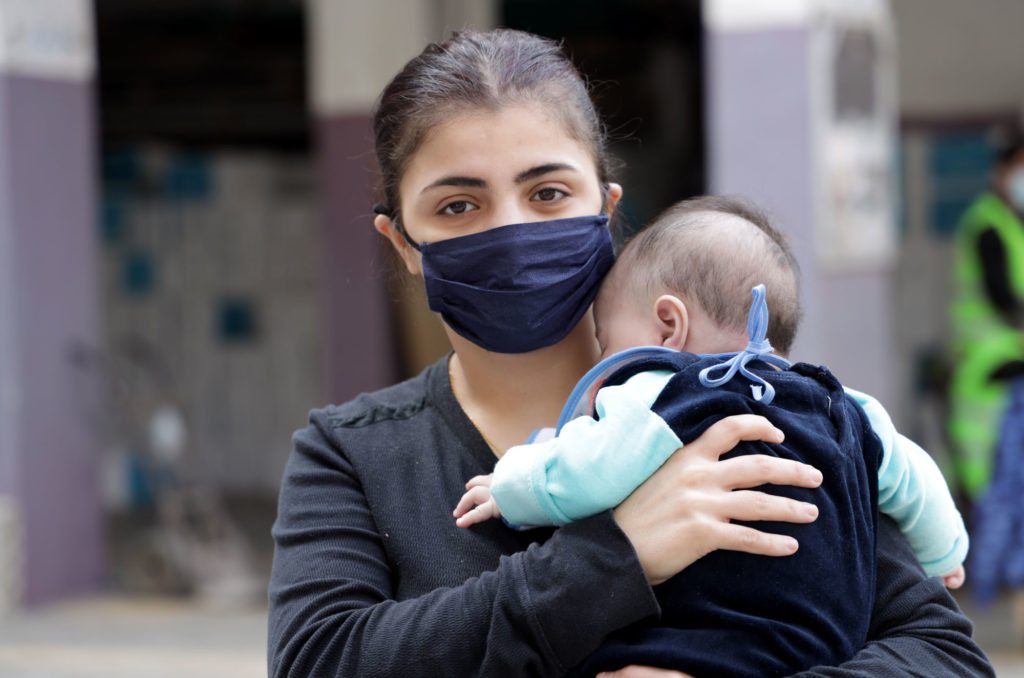

The August port explosion in the heart of Lebanon’s capital, Beirut, was felt and heard in Turkey, Syria, Palestine, Cyprus, and parts of Europe. Two hundred and four people were confirmed dead, more than 6,500 people were injured, and over 150 people were permanently disabled. The material damage affected over half of the capital, with an estimated cost of $15 billion. The effects of the blast will be felt for years if not decades to come.
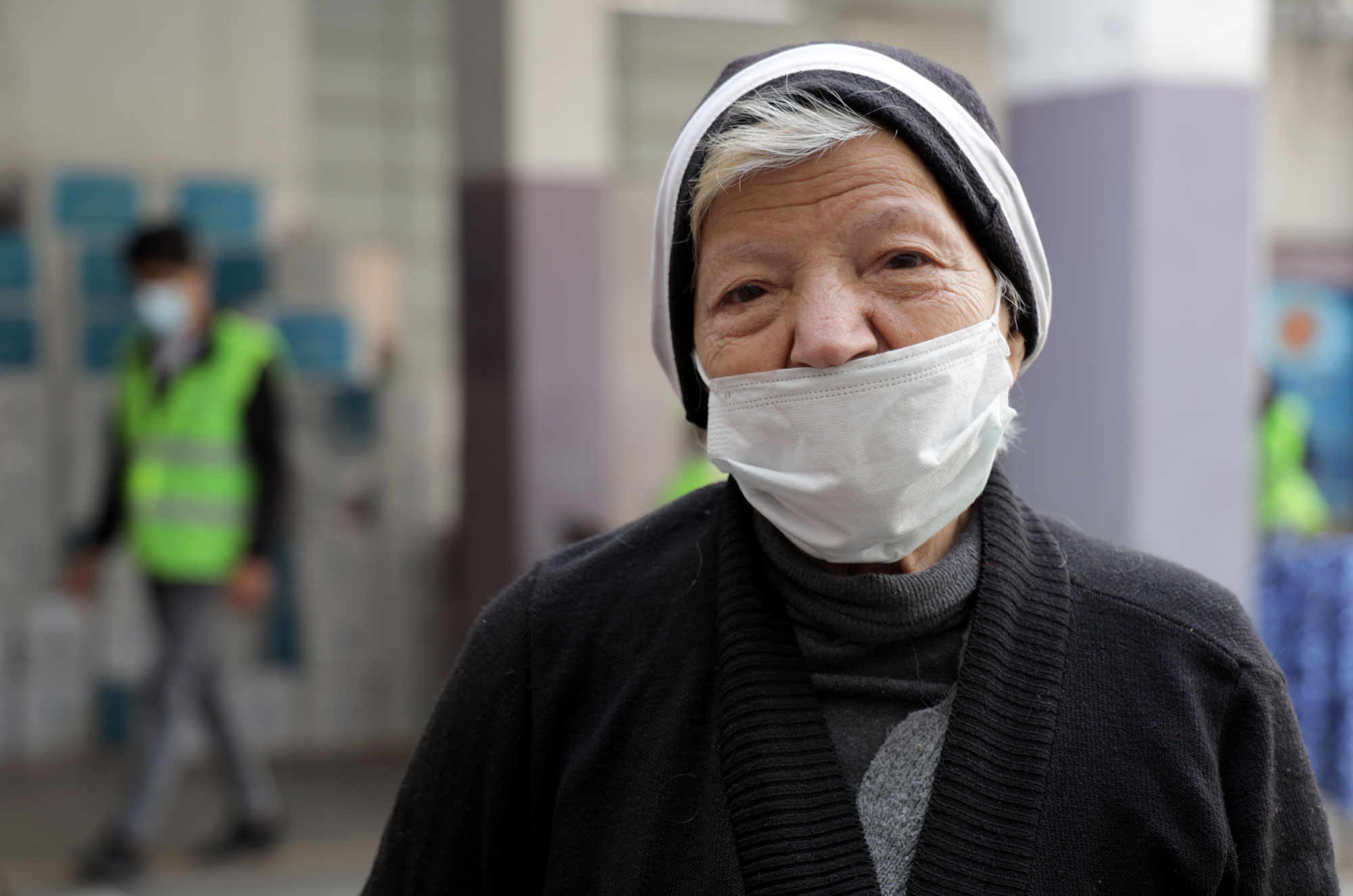

Anera and UN OCHA’s Lebanon Humanitarian Fund have been working together in coordinating response efforts to support families affected by the blast. Anera has partnered with the Lebanese Food Bank and eight other local NGOs in Beirut to ensure that we reach families and people of all religious sects, ethnic backgrounds, and nationalities.
Burj Hammoud, a suburb in east Beirut and one of the most densely populated neighborhoods in the Middle East, was heavily damaged by the blast. The Beirut port is located nearby, on its eastern shore. The area has a significant Armenian population — a legacy of the 1915 Armenian genocide, which drove many survivors to settle there. A century later, the Armenian community is now a well-established population in the country — so much so that Lebanon is home to the only Armenian university outside of Armenia.
Although predominantly Armenian, Burj Hammoud is also home to Lebanese Christians and Shi'a Muslims, a small Kurdish population, and Palestinian refugees, as well as newer Christian refugees from Iraq. All have been gravely affected by the economic crash, the civil unrest, and the Beirut blast.
To reach the most vulnerable families, we partnered with the Howard Karagheusian Commemorative Corporation, which maintains offices in New York, Armenia and Burj Hammoud. Founded to support orphaned survivors of the genocide, the Karagheusian Foundation provides healthcare, educational, housing and other community services to Armenians around the world.
Anera and our partners have distributed food and hygiene kits to 250 people in Burj Hammoud. Each person receives four rations — three food rations, and a personal hygiene ration, sufficient to last two months. We organized the distribution at the Karagheusian Foundation, and volunteers from the Lebanese Food Bank assisted with data collection, organization and distribution. Participants followed precautionary measures to prevent the spread of the coronavirus, wearing PPE and adhering to physical distancing where possible.
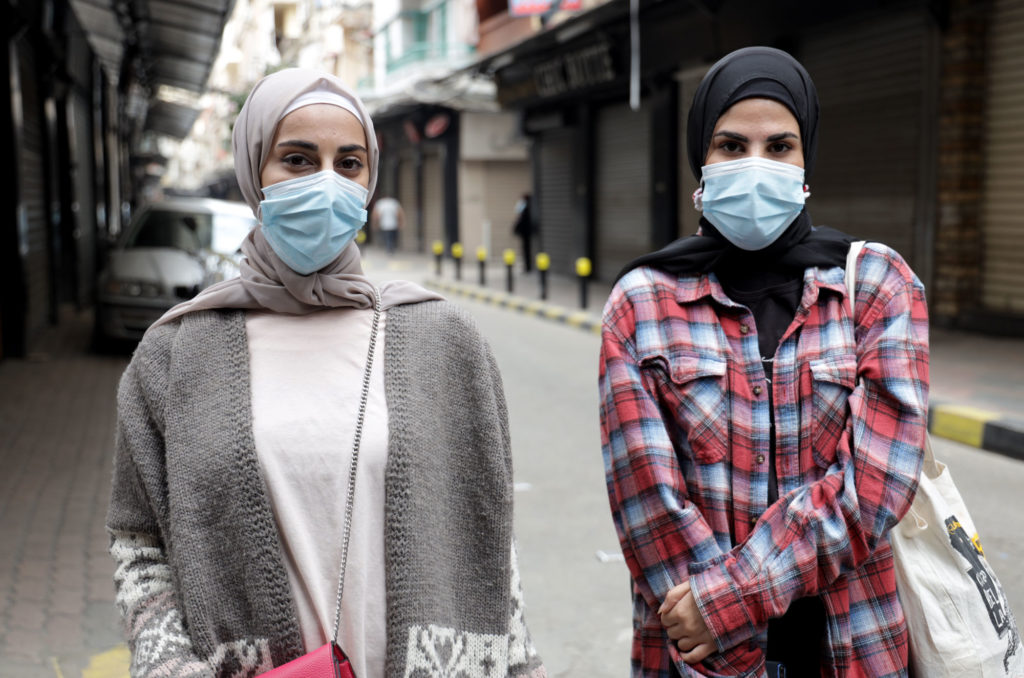

Hayat Fakhreddin, a social activist, says, “Today's initiative is very important. All marginalized families in this region have benefited from this aid.”
Hayat adds, “We’re here in the Naba'a Burj Hammoud neighborhood.”


“This area is a true example of Muslim-Christian coexistence.”
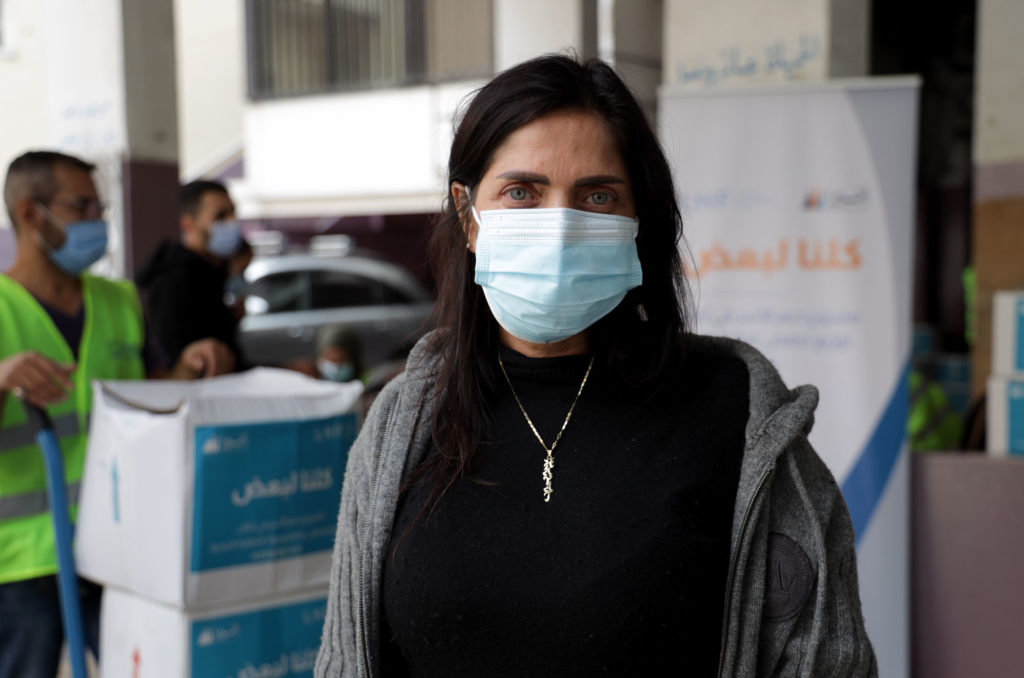

“To give you an example," she says, "a poor Christian woman named Huyam generously hosted her neighbor Khadija, a Muslim woman whose home was severely damaged by the blast. It shows the solidarity of this area’s population, regardless of any supposed differences.”
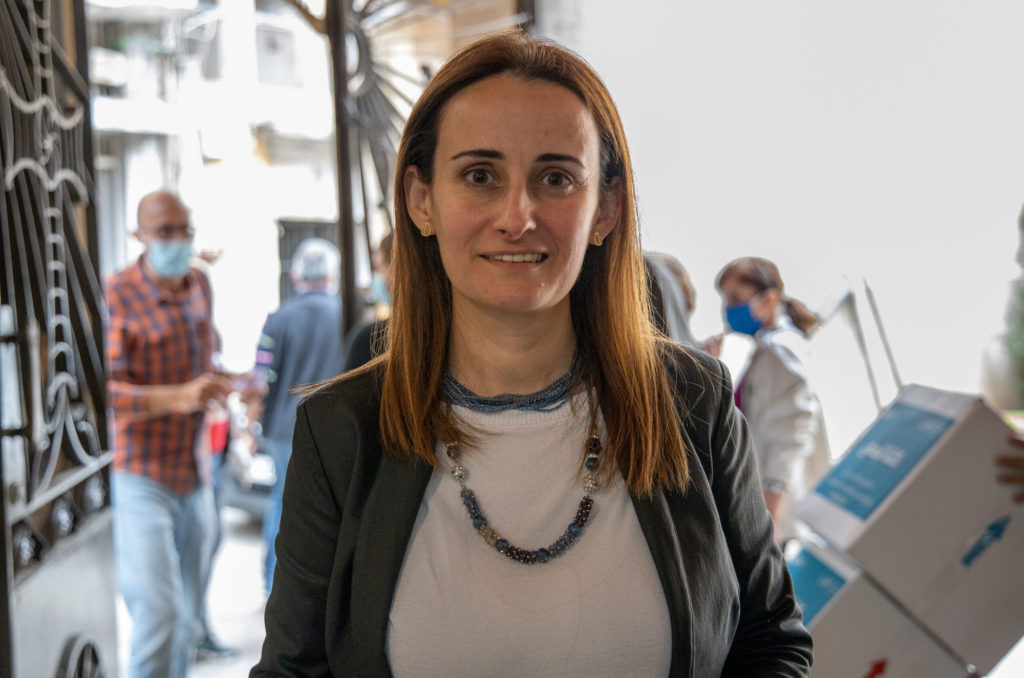

Christine Tanilian, project manager at Karagheusian Foundation, says,


“Many marginalized families benefit from this effort, especially in light of these difficult living conditions.”
She thanks Anera supporters “for the support they provide to the poor families in our community. It is now needed more than ever.”


